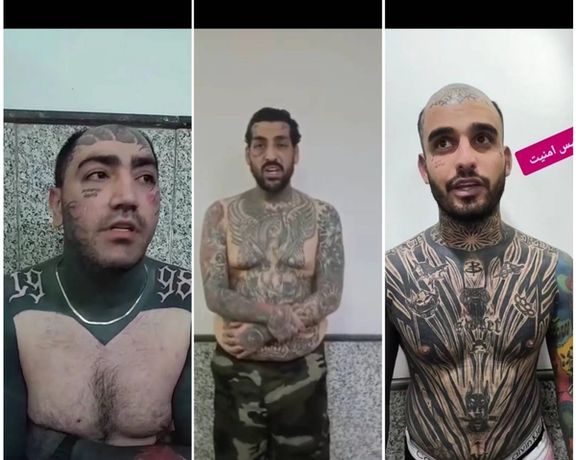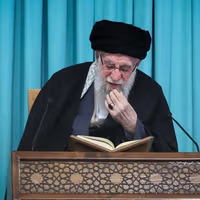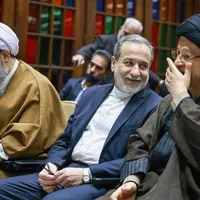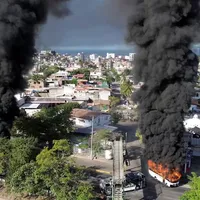The value of Iran's currency plumbed new lows after the UN sanctions triggered by European states resumed late last month, raising already eye-watering costs of living.
In one video sent to Iran International, a man displays grocery bags containing apples, peaches, grapes and bananas while criticizing Iranian authorities for what he described as economic mismanagement.
“I bought four basic items, not luxury fruits, and it cost 16,000,000 rials ($14). The more people tolerate you government folks, the worse you act," he said. "People have shown patience, and you’ve ruined the country. You get worse every day. What happened after the war? Executions and skyrocketing prices. How much more?”
Another man shared a video showing his grocery purchases and chiding Iran's Supreme Leader for saying sanctions have had no impact.
“I bought one kilogram (2.2 pounds) of cucumbers, one kilo of eggplants, one and a half kilos of potatoes, one and a half kilos of onions and one kilo of tomatoes—it totaled 7,290,000 rials ($6.6). Then Khamenei says sanctions have no effect. God damn you for dragging us to hell,” he said.
In another video, a shopper focuses on the price tag of a tray of eggs, comparing the cost before and after the reimposition of sanctions while addressing Iranian president Masoud Pezeshkian.
“Look at this egg price, it’s 1,980,000 rials for 30 ($1.8). Before the snapback mechanism, it was 1,300,000 rials ($1.2). Mr. Pezeshkian, maybe the mechanism didn’t affect you, but it hit chickens and eggs hard,” he said.
Bread and dates
One video uses sarcasm to highlight the rising price of dates, a fruit often referenced in Islamic teachings.
“They told us all our lives that the Prophet and Imams lived on bread and dates. A 700-gram (1.5 pounds) box of the ‘Prophet and Imams’ food’ now costs 3,760,000 rials ($3.4). We’ve crossed the peak—we’re heading to the skies,” he said.
Iran’s minimum wage for 2025 is 104 million rials per month, equivalent to about $94.
To offset inflation, the Iranian government has issued a series of vouchers known as Kalabarg to help low-income households.
The vouchers are valued at 5,000,000 rials ($4.5) per person for income deciles 1–3, and 3,500,000 rials ($3.1) for deciles 4–7.
A woman in another video shows her purchases using a family voucher and questions its effectiveness.
“I got a four-person voucher worth 14,000,000 rials ($12.6). With it, I bought one tray of eggs, one box of tea, two tomato pastes, one laundry liquid, one pack of noodles, and one pack of gum. All this hype about vouchers, and that’s all it got me,” she said.












